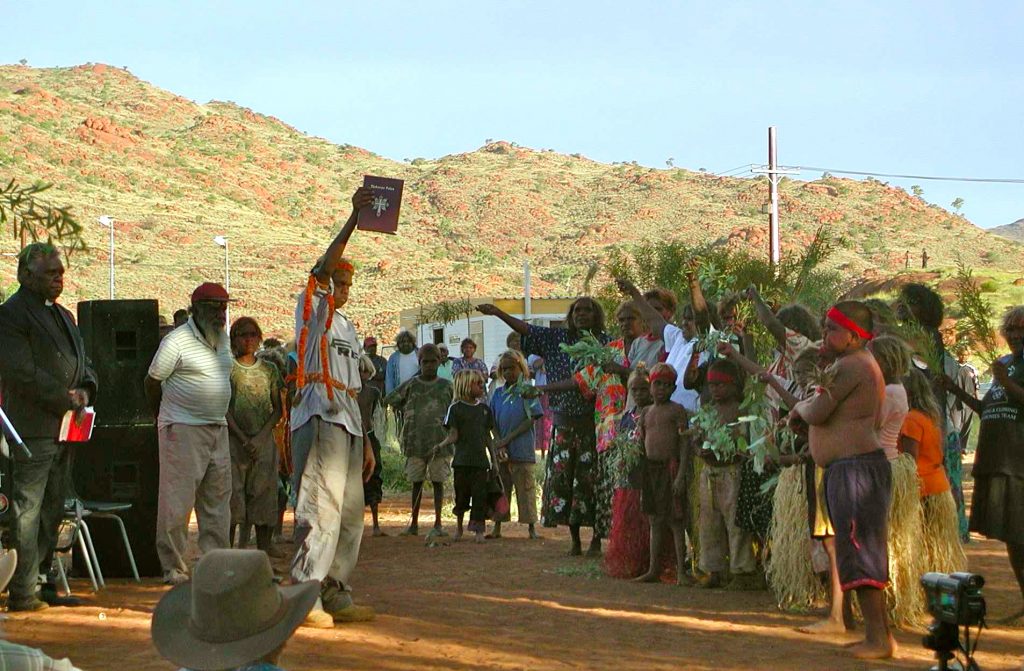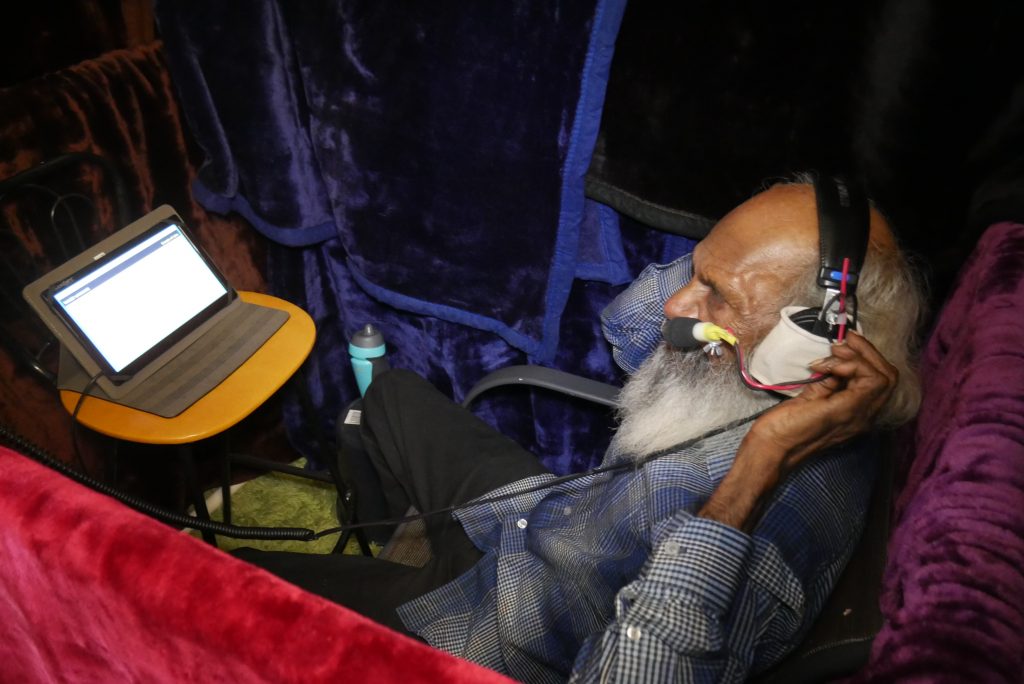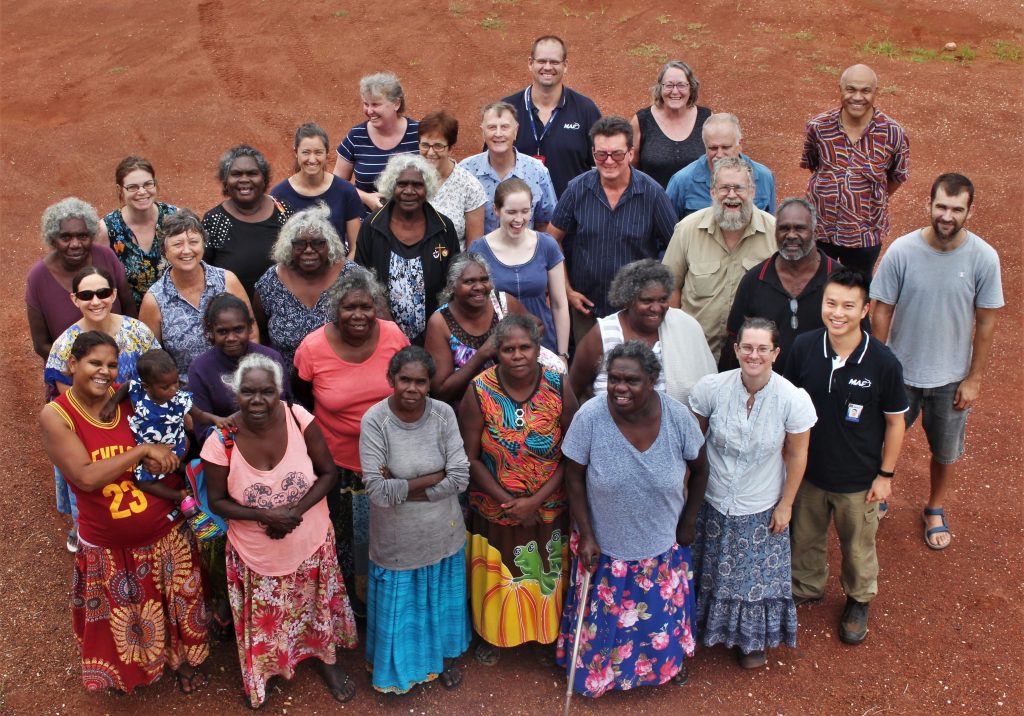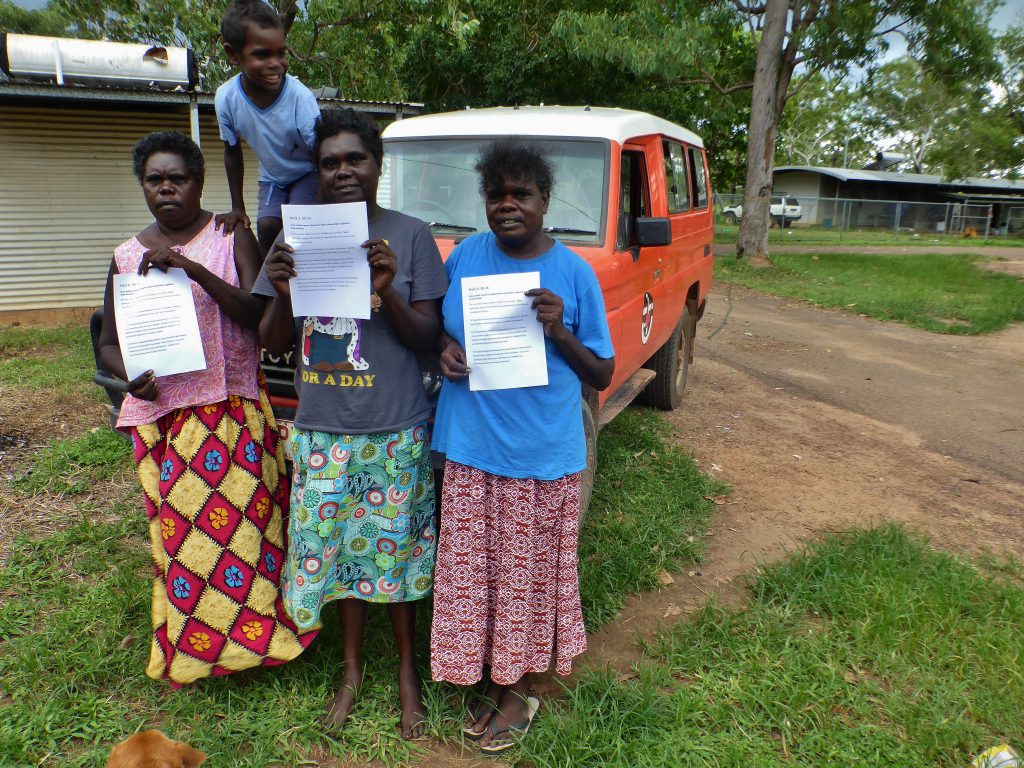International Translation Day
Today is International Translation Day. At Frontier Services we work with all kinds of communities across Australia. And for many, English is not necessarily their primary language. This is particularly true in the West Arnhem Remote Area which is ministered to by our Bush Chaplain, Lindsay Parkhill. Lindsay’s wife Louise Macdonald, also works for an agency of the Uniting Church known as Coordinate. Their mission is to encourage and facilitate the translation of the Bible and other resources into Australian Indigenous languages. To mark translation day, we spoke to Louise about the importance of Coordinate’s work.
Can you tell us about what Coordinate does?
Our purpose is to support Indigenous scripture through translation into local languages and Scripture in Use projects. Coordinate is made up of all the Indigenous translators and Scripture in Use workers who belong to Churches within the Northern Synod of the UCA along with their non-Indigenous partners. For many years we have partnered with Bible Society to support the translation of the New Testament into Pitjatjantjarra from the APY lands in South Australia. Last year 40 Pitjatjantjarra speakers recorded the New Testament with Faith Comes by Hearing. This recording is dramatised with music and sound effects and well worth having a listen to even if you can’t understand the language. This recording work led the Pitjatjantjarra to be able to print a revised New Testament which is awaiting dedication this year. 16 Pitjatjantjarra translators (most of whom are descendants of the original New Testament translators) are currently working on translating the Old Testament.
The Pitjatjantjarra are currently working on revising their hymn book. We are currently working with Mayali translators in Jabiru to translate liturgical materials, and in particular, a communion service.

What are the faith communities like in the regions that you work in?
They are very vibrant communities; totally foreign to what a suburban church in Melbourne or Sydney might look like. The community as a whole recognises the value of the church. For example, the church at Jabiru has worship every night during lockdown and you can hear it across town and that has been embraced by most of the community.
In West Arnhem, each community has raised pastors who minister to their own language group. Language is central to each clan’s identity so there is enormous pride in having church leaders who can minister in language to their own group.

What role does language play in fostering intercultural dialogue in the communities that Coordinate works with?
Land is central and language is connected to the land. So in the same way that ownership over the land varies across place, ownership over the language also varies. So by having pastors that minister in their own languages, we’re respecting the law of not just the land but the language too.
Most people in remote communities speak at least one Indigenous language. But there continues to be considerable language loss – where once there would have been multiple languages and dialects, now only 2 or 3 languages are spoken as lingua franca. The loss of the bilingual programs in schools about 12 years ago in the NT has exacerbated this loss of language diversity. Lindsay, who was the last bilingual teacher at Warruwi Goulburn Island talked about working in partnership with Indigenous teachers. This policy of English only for the first four hours of the school day is being dismantled but much of the skill and resources is having to be rebuilt – it is a slow process. Coordinate has advocated for bilingual programs in schools.

What does translation work mean to the local communities in preserving their culture and heritage?
All of the projects supported by Coordinate are the result of requests from Indigenous language speakers. By resourcing language work in Indigenous church communities we are respecting the language and cultural expertise within these communities which in turn leads to empowerment and pride which strengthens communities and cultures.

To find out more about Coordinate’s work, visit their website at: http://www.coordinate.org.au/
To support the work that Frontier Services does in Indigenous communities, donate now.


